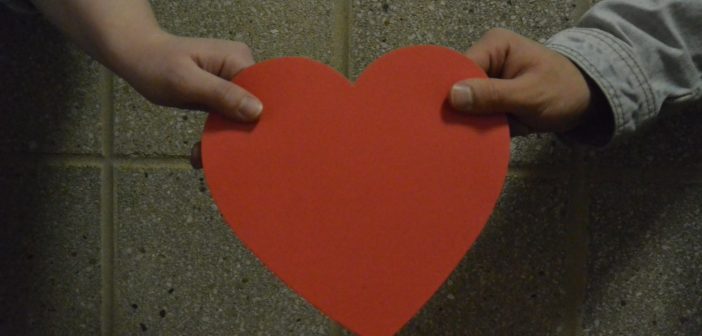Love: a feeling, state of mind or attitude we all have experienced in some shape or form. Fromc ompassion to a romantic attachment or sexual attraction, “it is a feeling that is constantly sought after” according to senior Jessica DeJong.
At times it can be the driving force in our lives, and something that causes us to over-analyze and do things we didn’t think we were capable of doing. What is it about the idea of love that drives us to do crazy, uncoordinated, face palm things when we seesomeone we like?
A recent study conducted at Rutgers University in New Jersey revealed there are three specific stages
involved when a person falls in love or has fallen in love. The three stages include lust, attraction and attachment.
Although this may be obvious, there is more that goes on inside the body than having awkward sweaty palms and a nervous nail bit. Throughout each stage, different hormones and chemical reactions within the body affect how we feel and engage with that special someone.
The first familiar stage of falling in love is good ole lust. We all know this feeling; it is said to be the initial stage of falling in love. This feeling is instigated by the sexual hormones estrogen and testosterone. According to a study led by New York psychologist and professor Arthur Arun, on average, a person takes between 90 seconds to 4 minutes to determine if he or she fancies someone or not. Surprisingly, this has little to do with the all those great pickup lines and smooth-talking some utilize. Instead, 55 percent depends on body language, 38 percent is the tone and speed of a person’s voice, leaving only 7 percent for what a person may say.
If you make that worthwhile connection, the next stage is attraction. Have you ever seen a person you may have liked and when it comes time to talk to him or her, your heart feels like it will beat out of your chest and your mouth turns dry as sandpaper? These ‘symptoms’ are all thanks to the hormone adrenaline. When adrenaline is present in the body, a person’s stress response, or cortisol levels, increase while senses decline. Along with adrenaline, dopamine levels in the body are increased.
Dopamine is a neurotransmitter both male and females have that stimulate the feeling of pleasure in the body. Scientists have described an increase of dopamine due to love has the same effect on the brain as taking cocaine.
In the last stage of attachment, it is too late to turn back. Attachment is the bond where two people fall in love wholeheartedly. This is where the hormone oxytocin, also known as “the cuddle hormone”, is released. To student Andrew Tadych, attachment love is, “a bond on a deeper level that can help people stay together for life.”
Whether we find a special love for life or even a short time in our lives, a powerful chemical bond (or the memory of one) can stay with us for as long as we live.

